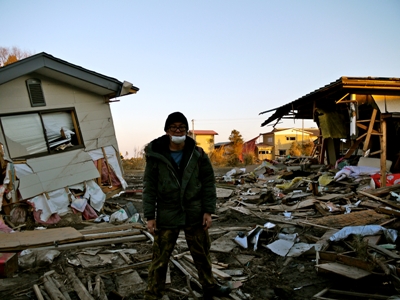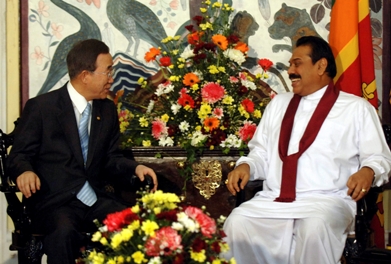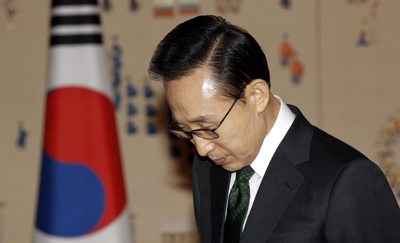Freelance, online reporting discouraged on nuclear threat
The Japanese government upped the danger rating for the disaster at the Fukushima Daiichi Nuclear Power Station to its highest level, 7, on Tuesday, a month after an earthquake and tsunami devastated the country. It was not yet clear whether the administration or the Tokyo Electric Power Company, which runs the plant, withheld the extent…

Freelancer Hiro Ugaya on covering Japan’s crisis
Following up on our post about the difficulties of covering the aftermath of the Japanese earthquake from outside the mainstream media, CPJ spoke with intrepid freelancer Hiro Ugaya, whom we first interviewed in 2010. “From April 2 to 8, I was traveling in tsunami-destroyed area in Tohoku, northeastern Japan,” he told CPJ by email from…

U.N. vows transparency on Sri Lanka abuses
The three-person panel of experts on Sri Lanka appointed in 2010 to look into possible war crimes during the decades-long conflict with Tamil secessionists submitted its findings to U.N. Secretary General Ban Ki-moon on Tuesday. That report should include the attacks on the news media that have become a reality for journalists working there.
In Ai Weiwei coverage, a couple of unexpected notes
We reported Thursday that Chinese media reports on Ai Weiwei have reflected his ambiguous status in Chinese law. After several days in which Ai was considered missing, the Foreign Ministry acknowledged police were investigating him for “economic crimes” although it stopped short of saying he was detained. Coverage within China remains very limited, although there…
In China, a state of denial on detentions, abuse
China’s Foreign Ministry spokesperson, Jiang Yu, today denied having heard of Sydney-based Chinese author and blogger Yang Hengjun, according to The Associated Press. We reported yesterday that Yang was missing, presumed to be the latest high-profile writer to fall victim to the government’s aggressive roundup of critics who might respond to online calls for a…

In well-wired South Korea, all is not well for press freedom
CPJ ranks North Korea, with no independent media, as the world’s most censored state. South Korea, with a wide-open press, seldom comes in for criticism. The high-tech, economic powerhouse is ranked as one of the most intensely wired nations in the world, and South Koreans enjoy near universal Internet access. But all is not well…
Is China censoring phone conversations?
Are Chinese mainland citizens, as has been reported, finding their telephone conversations cut off whenever they mention the word “protest?” While large-scale, real-time voice recognition is a technological possibility, it is at the edge of what is believed likely. It would certainly be revealing about the capabilities of the Chinese government if these anecdotes proved…

Malaysia court gets joke, drops case against blogger
In September 2010 we posted an alert about criminal charges being brought against Malaysian blogger Irwan Abdul Rahman. He was accused of “intent to hurt” because of a March 2010 satirical entry on his blog, nose4news, that made fun of Malaysia’s state-run power company Tenaga (TNB). The charges were brought by the Malaysian Communications and…
